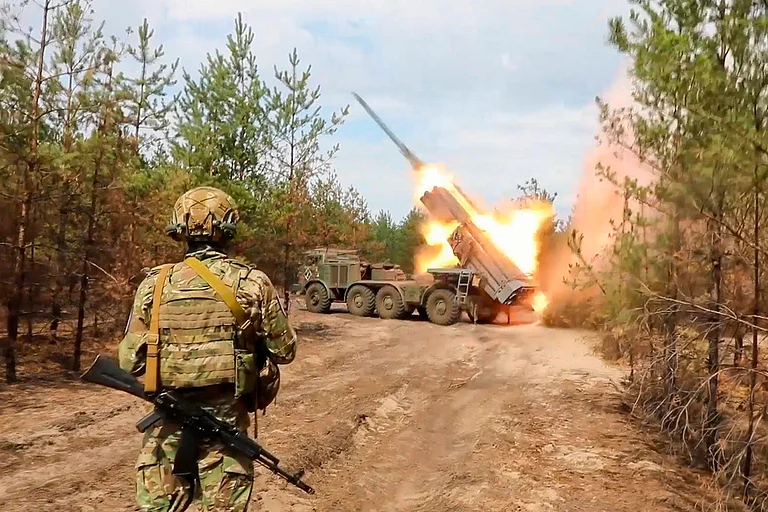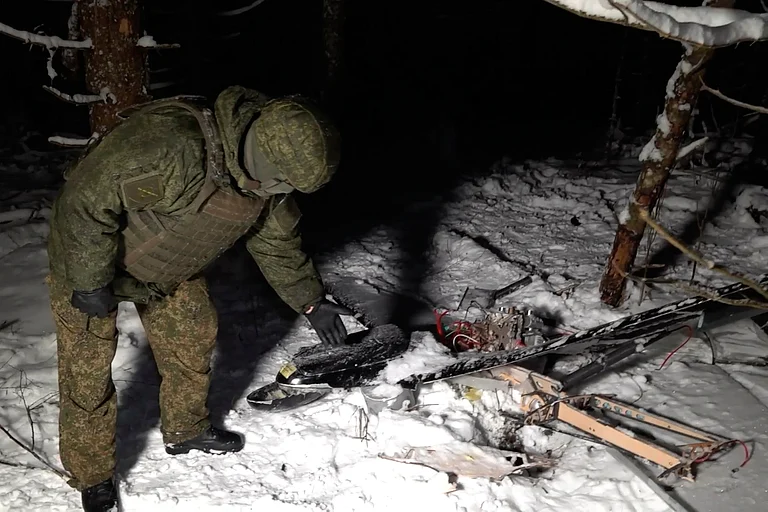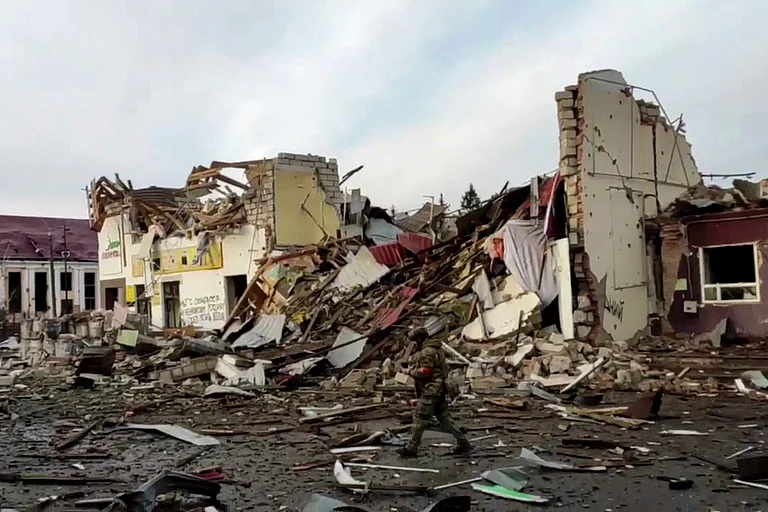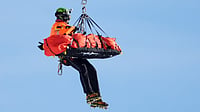One of the handful of F-16 warplanes that Ukraine has received from its Western partners to help fight Russia's invasion has crashed, Ukraine's Army General Staff said Thursday. The pilot died.
The fighter jet went down on Monday, when Russia launched a major missile and drone barrage at Ukraine, a military statement posted on Facebook said. Four of those Russian missiles were shot down by F-16s, the statement said.
The crash was the first reported loss of an F-16 in Ukraine, where they arrived at the end of last month. At least six of the warplanes are believed to have been delivered.
The Defence Ministry has opened the investigation into the crash.
Earlier Thursday, Russia conducted a heavy aerial attack on Ukraine for the third time in four days, again launching missiles and scores of drones that mostly were intercepted, Ukraine's air force said.
Russian forces fired five missiles and 74 Shahed drones at Ukrainian targets, an air force statement said. Air defences stopped two missiles and 60 drones, and 14 other drones presumably fell before reaching their target, it said.
Authorities in the capital, Kyiv, said debris of destroyed drones fell in three districts of the city, causing minor damage to civilian infrastructure but no injuries.
Russia's relentless and unnerving long-range strikes on civilian areas have been a feature of the war since it invaded its neighbour in February 2022.
Belgium, Denmark, the Netherlands and Norway – all NATO members -- have committed to providing Ukraine with more than 60 of the planes. That number is dwarfed by the Russian jet fighter fleet, which is around 10 times larger.
Ukraine needs at least 130 F-16 fighter jets to neutralise Russian air power, Kyiv officials say.
US officials told The Associated Press at the end of last month that the first of a batch of F-16s promised by European countries had arrived in Ukraine.
Military analysts have said their arrival won't be a game-changer in the war, given Russia's massive air force and sophisticated air defence systems. But Ukrainian officials welcomed them as offering an opportunity to hit back at Russia's air superiority.
Ukraine has until now been using Soviet-era warplanes, and its pilots underwent intense training on the F-16s in the West for months. The usual training period is three years.
US President Joe Biden granted authorisation in August 2023 for the US-built warplanes to be sent to Ukraine. That came after months of pressure from Kyiv and internal debate in the US administration where officials feared the move could escalate tensions with the Kremlin.
The F-16s can fly up to twice the speed of sound and have a maximum range of more than 2,000 miles (3,200 kilometres). They can also fire modern weapons used by NATO countries.
Ukrainian officials have recently become more vocal in their long-standing insistence that Western countries supporting their war effort should scrap restrictions on what Ukraine is allowed to target inside Russia with long-range weapons they have provided.
Ukraine President Volodymyr Zelenskyy renewed his pleas for Western allies to untie his hands in deciding what to strike on Russian soil.
“All our partners should be more active — much more active — in countering Russian terror,” Zelenskyy said late Wednesday. “We continue to insist that their determination now — lifting the restrictions on long-range strikes for Ukraine now — will help us to end the war as soon as possible in a fair way for Ukraine and the world as a whole.”
The European Union's top diplomat on Thursday backed Zelenskyy's push for international backers to end their limits.
Ukraine has deployed domestically produced drones to strike Russia.
The Russian military said Thursday it had thwarted an overnight attack on Crimea. The Russian Defence Ministry said its forces destroyed three Ukrainian sea drones aimed at the Black Sea peninsula that Moscow annexed from Ukraine in 2014.
The Russia-installed governor of Sevastopol Mikhail Razvozhayev added that four Ukrainian aerial drones and three sea drones were destroyed “at a significant distance” from the peninsula's shore.
In the meantime, Ukraine's Army General Staff acknowledged Thursday Ukraine's involvement in strikes this week on oil depots deep inside Russia, where blazes broke out.
The attacks in the Rostov and Kirov regions were part of Ukraine's effort to disrupt logistical infrastructure supporting Russia's war machine.


























